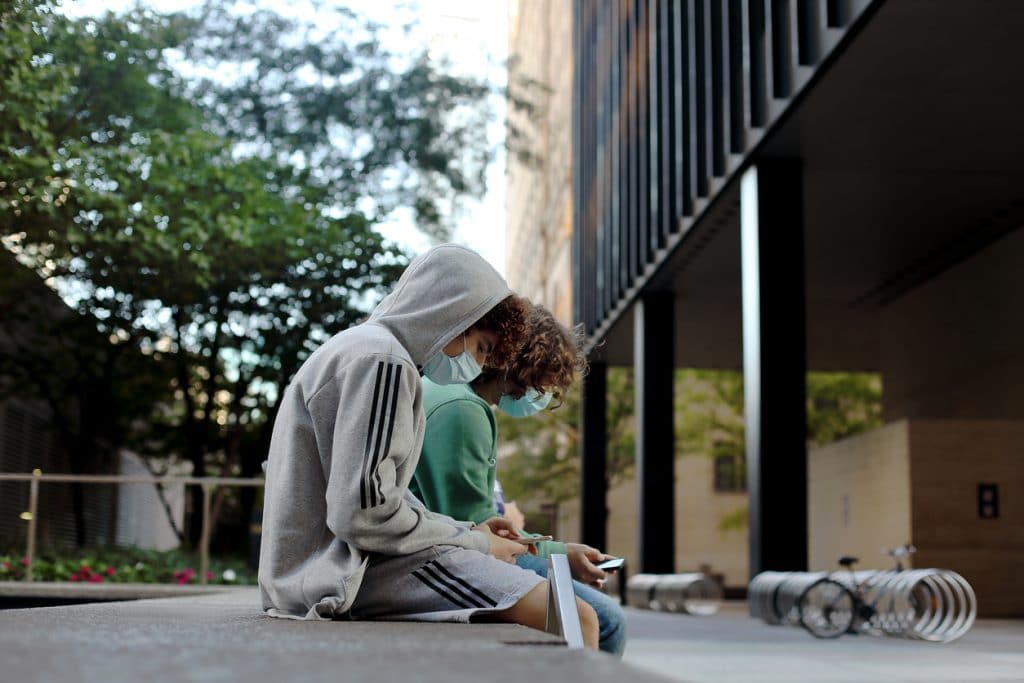
By Amy Brown
22 March 2022
Pre-COVID, I used to sit in meetings with other youth ministers sharing some of the challenges we faced working with young people. It was the same for everyone: youth mental health.
Teenagers were struggling with anxiety, depression, self-esteem, sexuality and identity, gender incongruency, suicidal tendencies and more. It all boiled down to their mental health. Even then, the worry was evident in each leader’s face.
How do we help our young people struggling with mental health? None of us felt equipped to do that well.
And then COVID happened.
And anyone who was OK before, suddenly wasn’t. For some, that shift happened overnight. For other teenagers, it was a slow and steady eating away of their soul. For all of us, some level of hope died a little bit as we learned to live with disappointment after disappointment and cancelled plans on top of postponed ones.
And we still had the same question, but more complicated: how do we help our young people struggling with mental health … when we can’t even see them in person anymore, and when our leaders’ own mental health is deteriorating?
Read more: The questions I’m asking our parties around family violence this election
As we came back to youth group and school in-person, I’d hear stories of some loving it, and others struggling with social anxiety that they didn’t have before. Everyone, even the extroverts, seemed to be coping with a new level of fatigue that also wasn’t there previously.
For those in early high school, the anxiety about returning to school was particularly high. It remains so. For two years these teenagers haven’t had a real chance to form friendship groups and build on their basic socialising skills. In mental health terms, it means one of their key supports – their friends – are not there for them right now when they need it.
For us, one of the best things at the end of 2021 was being able to go away on our youth camp. But even there, the true state of our teenagers’ mental health was revealed. Some experienced anxiety attacks, others a depressive episode, and others were pushing push emotions away because they were just too much to cope with.
Youth mental health was an issue pre-COVID, and it’s even more the case now. It’s the same for children too.
But most of the leaders involved in children’s and youth ministry in our churches are not properly equipped to assist in a moment of crisis. Volunteers who are offering support to young people in our churches need to have the right tools for the job at hand. Right now, one of the tools we need is youth mental health first aid training, and that training is expensive!
Read more: Filling the cracks and the payment trap: What BSL wants in May
As we seek to support our young people, we need our government supporting us. One of the clear ways to do that is to fund this youth mental health first aid training for volunteers in churches and other secular, volunteer-run youth support organisations. Beyond this, a clear strategy is needed outlining support, and how it is being offered in our state and local council areas.
The government has provided free Psychological First Aid training (different to the youth-oriented training) for those involved in the ongoing support of the regions hit by the 2020 bushfires, but what about in the aftermath of the pandemic? Could this training be formally opened for those supporting trauma-affected young people? That is nearly everyone right now.
Some local councils are also offering the youth mental health first aid training for those within their community. But if you fall outside those boundaries, what support is there for you?
All young people are suffering and the volunteers supporting them need to be equipped to help them appropriately. Unless you fall into a particular locality, or field of work, you are unlikely to receive the required funding needed to complete any useful training. We need a better plan of support that addresses youth mental health and equips those supporting them.
This election, I would ask our parties: how do you plan to address youth mental health and support those on the ground supporting our young people? And to those who will vote, I ask, consider how your party supports this issue and whether there is funding to implement any policies.
The Reverend Amy Brown is senior associate minister – children and youth at St Jude’s Anglican Church in Carlton.








One Response